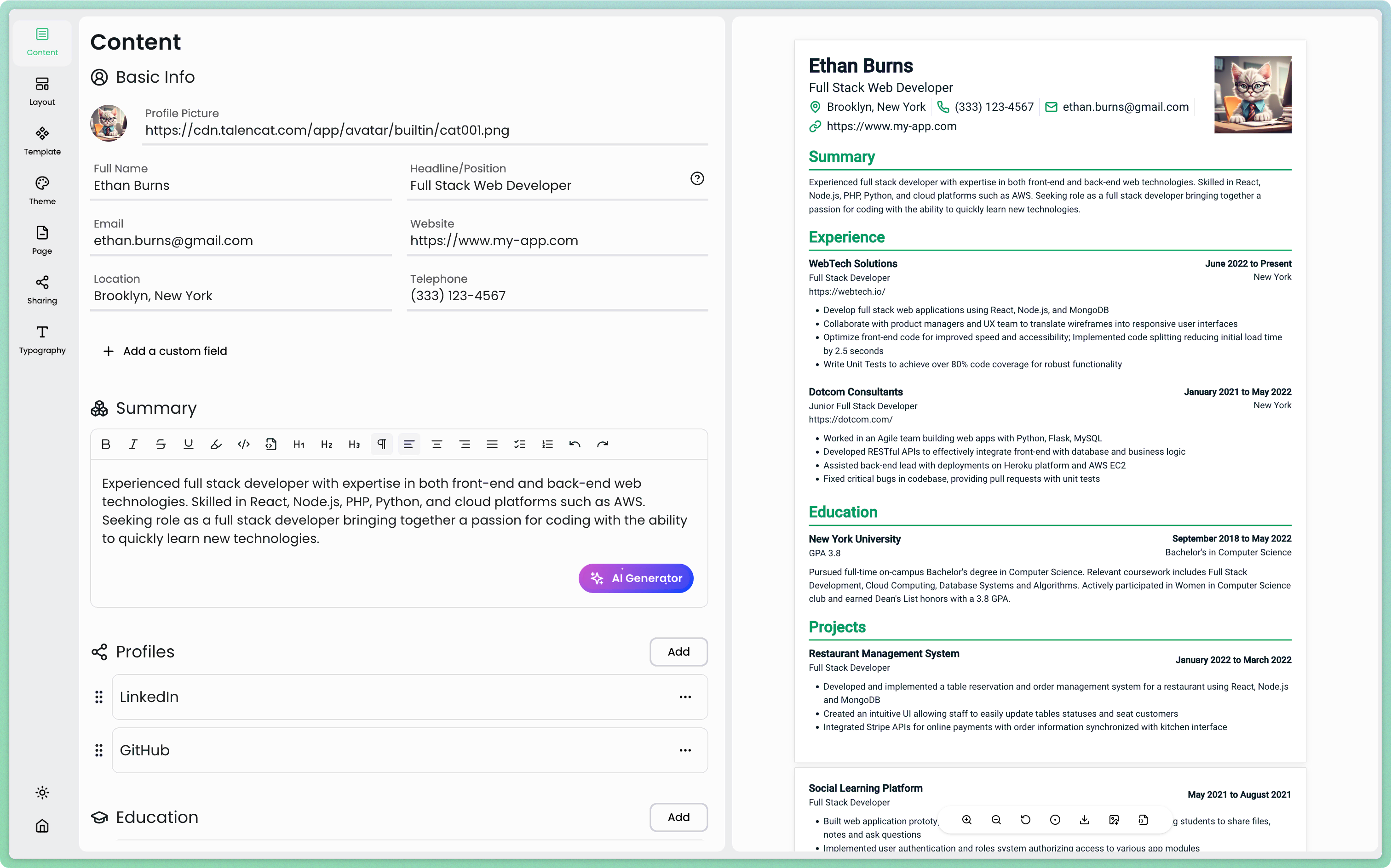Preparing for an athletic director interview can be a challenging yet exciting process. As a candidate for this crucial leadership role in sports administration, you'll need to demonstrate a wide range of skills, from program management to student-athlete welfare. This comprehensive guide will walk you through the essential interview questions you're likely to encounter, providing expert insights and strategies to help you showcase your qualifications and vision for the athletic program.
Understanding the Role of an Athletic Director
Before diving into specific interview questions, it's important to grasp the multifaceted nature of the athletic director position. An athletic director is responsible for overseeing all aspects of a school or institution's athletic programs, including budget management, hiring and supervising coaches, ensuring compliance with regulations, and fostering a positive environment for student-athletes.
The role requires a unique blend of leadership, administrative skills, and a deep understanding of sports and education. As you prepare for your interview, keep in mind that the questions will likely touch on various aspects of this complex role.
Common Athletic Director Interview Questions
Leadership and Management Questions
Leadership is a cornerstone of the athletic director position. Expect questions that probe your ability to guide a diverse team and manage complex operations.
Sample Question: "How would you describe your leadership style, and how has it evolved throughout your career?"
Expert Answer: "My leadership style is collaborative and adaptive. I believe in empowering my team members while providing clear direction and support. Over the years, I've learned the importance of flexibility and tailoring my approach to different situations and individuals. For example, in my previous role, I implemented a mentorship program that paired experienced coaches with newer staff, which not only improved our overall program performance but also fostered a culture of continuous learning and growth."
Program Development Questions
Interviewers will want to assess your ability to enhance and expand athletic programs.
Sample Question: "What strategies would you employ to improve the overall competitiveness of our athletic programs?"
Expert Answer: "To improve competitiveness, I would start by conducting a comprehensive assessment of current programs, identifying strengths and areas for improvement. I'd focus on enhancing recruitment efforts, investing in coaching development, and implementing data-driven performance analysis. Additionally, I'd work on fostering a culture of excellence that extends beyond the field, emphasizing academic achievement and character development as integral parts of athletic success."
Budget and Resource Management Questions
Financial acumen is crucial for athletic directors. Be prepared to discuss your experience with budgeting and resource allocation.
Sample Question: "How do you approach budget constraints while maintaining program quality?"
Expert Answer: "When facing budget constraints, I prioritize based on the core mission of the athletic department. I look for creative solutions, such as exploring partnerships with local businesses for sponsorships or implementing cost-saving measures without compromising program quality. For instance, in my previous role, we implemented a shared equipment program among similar sports, which reduced costs while ensuring all teams had access to high-quality gear."
Student-Athlete Welfare Questions
The well-being of student-athletes should be a top priority for any athletic director.
Sample Question: "How do you ensure the mental health and overall well-being of student-athletes?"
Expert Answer: "I believe in a holistic approach to student-athlete welfare. This includes regular check-ins with athletes, providing access to mental health resources, and fostering an environment where athletes feel comfortable seeking help. I've implemented programs that focus on stress management, time management, and life skills development. Additionally, I work closely with coaches to ensure they're trained to recognize signs of mental health issues and know how to provide appropriate support or referrals."
Compliance and Ethics Questions
Ensuring adherence to regulations and maintaining ethical standards is critical in athletics administration.
Sample Question: "How do you stay current with NCAA regulations, and how do you ensure compliance across all programs?"
Expert Answer: "Staying current with NCAA regulations is an ongoing process. I regularly attend compliance workshops, participate in webinars, and maintain a network of colleagues in compliance roles. To ensure department-wide compliance, I implement regular training sessions for coaches and staff, conduct internal audits, and use compliance management software to track and document our efforts. I also foster a culture of integrity where everyone understands the importance of following rules and reporting potential violations."
Behavioral Interview Questions for Athletic Directors
Behavioral questions aim to assess how you've handled specific situations in the past, which can indicate your future performance.
Sample Question: "Can you describe a time when you had to make a difficult decision that impacted the entire athletic department?"
Expert Answer: "In my previous role, we faced a significant budget cut that threatened several of our programs. I had to decide whether to eliminate certain sports or find alternative solutions. After careful analysis and consultation with stakeholders, I proposed a temporary reduction in operational costs across all programs, combined with an aggressive fundraising campaign. This approach allowed us to preserve all sports while engaging our community more deeply in supporting athletics. The decision was challenging, but it ultimately strengthened our department and community ties."
Situational Interview Questions for Athletic Directors
Situational questions present hypothetical scenarios to evaluate your problem-solving skills and decision-making process.
Sample Question: "If a star athlete was caught violating team rules before a championship game, how would you handle the situation?"
Expert Answer: "In this situation, I would first gather all the facts and consult with the coach and relevant staff. Regardless of the athlete's status or the importance of the game, our policies and values must be upheld consistently. I would ensure the appropriate disciplinary action is taken, communicating clearly with the athlete, team, and relevant stakeholders about the decision and its rationale. This approach maintains integrity, sends a clear message about expectations, and reinforces the importance of rules and fair treatment for all athletes."
Questions About Experience and Background
Your past experiences and qualifications will be of great interest to the interviewing committee.
Sample Question: "How has your background prepared you for the challenges of being an athletic director at our institution?"
Expert Answer: "My diverse background in sports administration, including roles in coaching, compliance, and fundraising, has given me a comprehensive understanding of athletic department operations. I've managed multi-million dollar budgets, led successful fundraising campaigns, and implemented student-athlete development programs. My experience at both Division I and Division III levels has taught me to adapt strategies to different institutional contexts. Additionally, my master's degree in Sports Management has provided me with theoretical knowledge that complements my practical experience, preparing me to tackle the unique challenges at your institution."
Questions About Vision and Goals
Interviewers will want to understand your long-term vision for the athletic department.
Sample Question: "What is your five-year vision for our athletic department, and how do you plan to achieve it?"
Expert Answer: "My five-year vision for the athletic department centers on three key pillars: competitive excellence, academic achievement, and community engagement. I aim to see our teams consistently competing for conference championships while maintaining top academic performance among student-athletes. To achieve this, I plan to implement a comprehensive strategic plan that includes enhancing our recruitment processes, investing in coaching development, and creating stronger academic support systems. Additionally, I want to increase our community outreach efforts to build a stronger fan base and create more opportunities for student-athletes to engage in meaningful community service."
Handling Difficult Situations
Athletic directors often face challenging scenarios that require tact, diplomacy, and problem-solving skills.
Dealing with Challenging Parents
Sample Question: "How do you handle parents who are overly involved or critical of coaching decisions?"
Expert Answer: "When dealing with challenging parents, communication is key. I establish clear channels for parents to voice concerns and implement a structured process for addressing issues. This includes educating parents about appropriate boundaries and the impact of their behavior on student-athletes. I also work with coaches to improve their communication with parents, ensuring transparency about team policies and decision-making processes. In extreme cases, I'm not afraid to have difficult conversations with parents about their behavior, always focusing on the best interests of the student-athletes and the program as a whole."
Managing Conflicts Between Coaches and Players
Sample Question: "How would you address a situation where a coach and player are in conflict, affecting team dynamics?"
Expert Answer: "In such situations, I would first meet separately with the coach and player to understand both perspectives. Then, I would facilitate a mediated discussion to find common ground and develop a plan for moving forward. It's crucial to ensure that both parties feel heard while also reinforcing team values and expectations. If necessary, I would involve additional resources such as sports psychologists or mentors to help resolve deeper issues. The goal is always to maintain a positive team environment while addressing legitimate concerns from both coaches and players."
Addressing Academic Performance Issues
Sample Question: "What steps would you take if you noticed a decline in the academic performance of student-athletes across multiple teams?"
Expert Answer: "If I noticed a widespread decline in academic performance, I would take a multi-faceted approach. First, I'd analyze data to identify patterns or specific areas of concern. Then, I'd meet with coaches, academic advisors, and faculty to gather insights and develop a comprehensive action plan. This might include enhancing tutoring services, adjusting practice schedules to allow more study time, or implementing mandatory study halls. I'd also work with coaches to reinforce the importance of academic success and potentially tie academic performance to playing time. Regular monitoring and follow-up would be crucial to ensure the effectiveness of these measures."
Sport-Specific Questions
Depending on the institution, you may face questions about managing specific sports programs.
Football Program Management
Sample Question: "Given the prominence of our football program, how would you ensure its success while maintaining balance with other sports?"
Expert Answer: "While recognizing the importance of football, I believe in creating an environment where all sports can thrive. I would work closely with the football program to maintain its competitiveness through strategic resource allocation and support. However, I would also implement strategies to elevate other sports, such as targeted marketing for less prominent teams and creating cross-sport support initiatives. The goal is to foster a unified athletic department where success in one sport contributes to the overall success and reputation of the entire program."
Balancing Multiple Sports Programs
Sample Question: "How do you ensure equitable treatment and resource allocation across different sports programs?"
Expert Answer: "Equitable treatment of all sports programs is crucial for a well-rounded athletic department. I approach this by implementing a transparent budgeting process that considers factors such as team size, equipment needs, and competitive levels. Regular meetings with all head coaches ensure open communication about resource needs and department goals. I also look for opportunities to share resources where possible, such as strength and conditioning facilities or sports medicine services. Additionally, I work to promote all sports equally through marketing and community engagement efforts, ensuring that every athlete feels valued regardless of their sport's profile."

Questions About Community and Stakeholder Engagement
An athletic director must be adept at managing relationships with various stakeholders, including alumni, donors, and the local community.
Sample Question: "How would you improve community engagement and support for our athletic programs?"
Expert Answer: "To improve community engagement, I would implement a multi-pronged approach. This would include organizing community events featuring our student-athletes, partnering with local schools for mentorship programs, and creating opportunities for local businesses to get involved with our programs. I'd also leverage social media and digital platforms to share compelling stories about our athletes and teams, highlighting both athletic achievements and community involvement. Additionally, I'd work on strengthening alumni relations through regular communication, reunion events, and opportunities for former athletes to mentor current students."
Technology and Innovation in Athletics
Modern athletic departments must stay current with technological advancements to remain competitive.
Sample Question: "How do you see technology shaping the future of college athletics, and how would you incorporate it into our programs?"
Expert Answer: "Technology is rapidly transforming athletics, from performance analysis to fan engagement. I envision incorporating advanced analytics tools to enhance training and game strategies across all sports. We could implement virtual reality training systems to improve player performance and reduce injury risks. For fan engagement, I'd explore augmented reality experiences at games and develop mobile apps for real-time updates and interactive content. Additionally, I'd look into blockchain technology for secure ticketing and potentially even for managing name, image, and likeness (NIL) deals for student-athletes."
Diversity, Equity, and Inclusion in Athletics Programs
Promoting diversity and inclusion is increasingly important in collegiate athletics.
Sample Question: "What strategies would you employ to enhance diversity and inclusion within our athletic department?"
Expert Answer: "Enhancing diversity and inclusion requires a comprehensive approach. I would start by conducting a thorough assessment of our current demographics and culture across all levels of the department. Based on this, I'd develop targeted recruitment strategies to diversify our coaching staff and administrative team. I'd implement mandatory diversity and inclusion training for all staff and student-athletes, focusing on creating an inclusive environment. Additionally, I'd establish mentorship programs and affinity groups to support underrepresented individuals within the department. Collaboration with campus diversity offices and external organizations would also be crucial in developing best practices and initiatives."
Fundraising and Sponsorship Questions
Securing financial resources is a critical aspect of an athletic director's role.
Sample Question: "What innovative fundraising strategies have you implemented in the past, and how would you apply them here?"
Expert Answer: "In my previous role, I implemented a successful crowdfunding campaign that allowed supporters to directly fund specific team needs or projects. This not only raised significant funds but also increased engagement by allowing donors to see the direct impact of their contributions. I also established a corporate partnership program that went beyond traditional sponsorships, offering internship opportunities for student-athletes. At your institution, I would adapt these strategies while also exploring new avenues such as cryptocurrency donations and virtual fundraising events to reach a broader donor base."
Career Development and Long-Term Goals
Interviewers will be interested in understanding your career aspirations and how they align with the institution's goals.
Sample Question: "Where do you see yourself in ten years, and how does this position fit into your long-term career goals?"
Expert Answer: "In ten years, I aspire to be recognized as a leader in collegiate athletics administration, known for innovative program development and student-athlete success. This position is an integral step in that journey, offering the opportunity to lead a diverse athletic department and make a significant impact on student-athletes' lives. Long-term, I aim to contribute to shaping national policies in collegiate sports, possibly through involvement with NCAA committees or other governing bodies. My goal is to continually evolve as a leader and to help advance the field of collegiate athletics as a whole."
Preparing for Your Athletic Director Interview
Researching the School or Institution
Thorough research is crucial for a successful interview. Familiarize yourself with the institution's history, current athletic programs, recent achievements, and challenges. Review the school's mission statement and strategic plan to understand how athletics fits into the broader institutional goals.
Dressing Appropriately for the Interview
First impressions matter. Dress professionally in business attire that aligns with the institution's culture. When in doubt, it's better to err on the side of being slightly overdressed rather than underdressed.
TalenCat: Ace Your Athletic Director Interview Questions
Preparing for an Athletic Director interview can be challenging, but with TalenCat CV Maker, you can streamline your preparation process. This online interview questions generator helps you create a professional resume and analyzes it to predict potential interview questions tailored to your experience.
Here's how to use TalenCat CV Maker to prepare for your Athletic Director interview:
Step 1: Sign up or log in to TalenCat CV Maker. You can either build a new resume for the Athletic Director position or upload your existing one.
Step 2: Navigate to the "AI Assistant" section and select "Interview Assistant" from the left-side menu. This feature will analyze your Athletic Director resume thoroughly.

Step 3: Click on "Analyze Now" to generate potential interview questions based on your resume content.

By using TalenCat CV Maker's Interview Assistant, you'll be well-prepared to tackle questions specific to your Athletic Director experience and qualifications. This tool gives you a significant advantage by allowing you to practice your responses to likely questions in advance.
Remember, the key to a successful interview is thorough preparation. TalenCat CV Maker not only helps you craft an impressive resume but also equips you with the tools to confidently face your Athletic Director interview.

With TalenCat CV Maker, you're not just creating a resume; you're building a comprehensive strategy for your Athletic Director career progression.
Red Flags to Watch Out For During the Interview Process
During your interview process for an athletic director position, it's essential to be aware of potential warning signs that could indicate challenges in the role. Here are key red flags to consider:
- Unclear Budget Information
- Reluctance to discuss specific budget details
- History of significant budget cuts without strategic planning
- Lack of transparency about financial resources
- Administrative Support Issues
- Limited interaction with senior administration during the interview process
- Vague answers about resource allocation
- Unclear reporting structure or chain of command
- Departmental Culture Concerns
- High turnover rate among coaches and staff
- Evident tension between departments
- Resistance to change or new ideas
- Poor communication between different levels of management
- Facility and Infrastructure Problems
- Severely outdated facilities without renovation plans
- Unsafe or non-compliant equipment and venues
- No clear timeline for necessary upgrades
- Compliance Issues
- History of violations without corrective measures
- Lack of established compliance protocols
- Resistance to discussing past compliance challenges
Follow-Up Questions to Ask the Interviewer
When interviewing for an athletic director position, asking thoughtful follow-up questions demonstrates your interest and helps you gather crucial information. Here are essential questions to consider:
Strategic Planning Questions
- What are the department's top three strategic priorities for the next five years?
- How does the athletic department's vision align with the institution's overall mission?
- What metrics are used to evaluate the success of athletic programs?
Resource and Support Questions
- What is the current state of athletic facilities, and are there any planned renovations?
- How is the athletic department funded, and what percentage comes from different sources?
- What support systems are in place for student-athlete academic success?
Administrative Questions
- How does the athletic department collaborate with other campus departments?
- What is the decision-making process for major departmental changes?
- How often does the athletic department meet with senior administration?
Staff Development Questions
- What professional development opportunities are available for staff?
- How is coaching staff evaluated and supported?
- What is the current staff retention rate?
Community and Alumni Relations
- How engaged are alumni with athletic programs?
- What is the relationship like with the local community?
- What opportunities exist for community partnerships?
Challenges and Opportunities
- What are the biggest challenges facing the department currently?
- What opportunities do you see for growth and improvement?
- How has the department adapted to recent changes in collegiate athletics?
Student-Athlete Experience
- What programs are in place for student-athlete welfare?
- How does the department support student-athletes' academic success?
- What initiatives exist for career development and post-graduation preparation?
Compliance and Risk Management
- How does the department ensure NCAA compliance?
- What risk management protocols are in place?
- How are Title IX requirements monitored and maintained?
Remember to listen carefully to the responses and ask follow-up questions based on the answers provided. This demonstrates your engagement and helps you gather valuable information about the position and institution.
Conclusion
In conclusion, preparing for an athletic director interview requires a deep understanding of the multifaceted role, encompassing leadership, program development, budget management, student-athlete welfare, compliance, and stakeholder engagement. By anticipating a wide range of questions—from leadership styles and program enhancement strategies to handling challenging situations and leveraging technology—candidates can effectively showcase their qualifications and vision for the athletic program.
Utilizing tools like TalenCat CV Maker can further streamline the preparation process, ensuring candidates are well-equipped to address specific questions related to their experience. Additionally, being vigilant for potential red flags during the interview process and asking thoughtful follow-up questions can provide valuable insights into the institution's culture and challenges. Ultimately, thorough preparation and a strategic approach will significantly enhance a candidate's chances of success in securing the coveted athletic director position.




